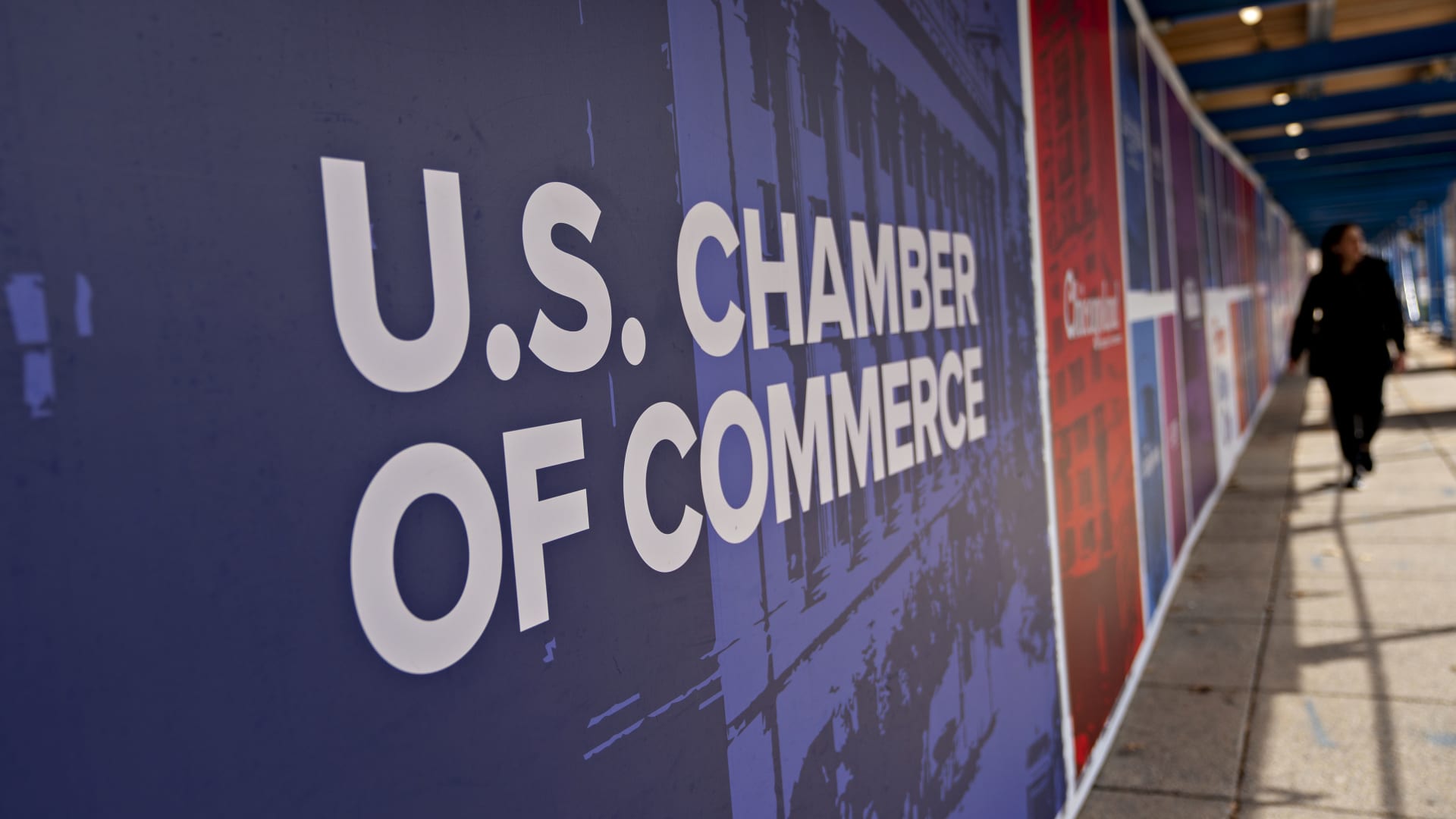The U.S. Chamber of Commerce seal is displayed during restoration at the headquarters in Washington, D.C.
Andrew Harrer | Bloomberg | Getty Images
The U.S. Chamber of Commerce has filed a motion for a preliminary injunction in Ohio, seeking to block Medicare from exercising its new powers to negotiate drug prices prior to October 1st.
This move represents a significant escalation in the ongoing legal battle between the pharmaceutical industry and Medicare, with the aim of halting the negotiations before they even begin.
By September 1st, Health and Human Services Secretary Xavier Becerra will publish a list of 10 high-cost drugs that have been selected for these negotiations. Drugmakers will then have to decide whether or not to participate by signing agreements before October.
The U.S. Chamber of Commerce, along with local chambers in Dayton, Ohio, and Michigan, filed a lawsuit against Medicare in June. The argument put forth is that these drug negotiations violate the First and Fifth Amendments of the U.S. Constitution, as well as the principle of separation of powers.
On Wednesday, the Chamber asked Judge Thomas Rose to block the negotiations, citing a violation of the due process clause.
One drug manufacturer, Abbvie, fears that its blood cancer drug Imbruvica will be chosen for the negotiations this fall. Imbruvica brought in $4.6 billion in revenue last year, accounting for approximately 8% of the company’s total sales.
In its motion, the Chamber argues that the HHS secretary’s ability to unilaterally set prices lacks appropriate administrative or judicial review.
The Chamber’s lawyers highlight a precedent set by the Sixth Circuit Court of Appeals, which maintains that when the government sets prices, procedural safeguards must be in place to ensure a reasonable rate and fair return on investment. This precedent stems from the 2001 case of Michigan Bell Telephone Co. v. Engler.
The Medicare drug price negotiations fail to provide these necessary safeguards and impose price caps that significantly undervalue the market worth of drugs, according to the chamber’s lawyers.
In a declaration to the court, Abbvie executive Michael Staff emphasized the potential acute and irreparable harm the company would face if forced to participate in the negotiations by signing an agreement on October 1st. Starting on October 2nd, companies would have to submit confidential information to the HHS secretary, including R&D costs, market data, and production expenses.
Other companies, such as Merck, Bristol Myers Squibb, and the Pharmaceutical Research and Manufacturers of America, have also filed lawsuits against Medicare regarding the drug price negotiations in federal courts across the United States.
Despite the legal challenges, both HHS and the White House remain committed to defending the Medicare program, arguing that there is no constitutional barrier preventing the negotiation of lower drug prices for seniors.
Denial of responsibility! VigourTimes is an automatic aggregator of Global media. In each content, the hyperlink to the primary source is specified. All trademarks belong to their rightful owners, and all materials to their authors. For any complaint, please reach us at – [email protected]. We will take necessary action within 24 hours.


